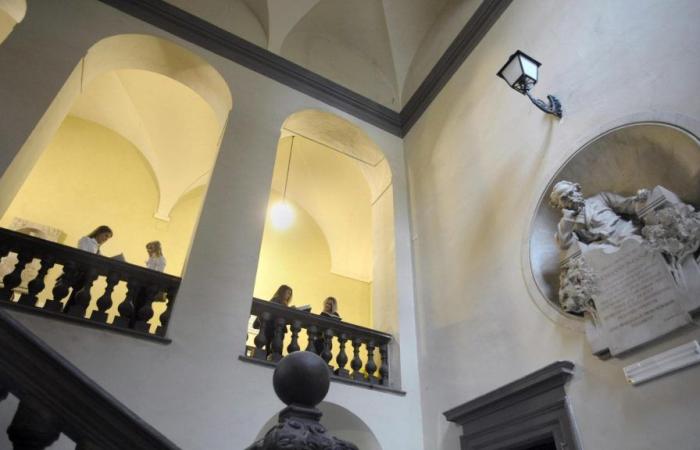The employment rate of female and male graduates from the University of Parma one and five years after obtaining the qualification is higher than the national average.
The overall level of satisfaction with the university experience was also very high (89.6%).
This is stated in the 2024 Report on the Profile and Employment Condition of female and male graduates of the AlmaLaurea Interuniversity Consortium, presented in recent days.
The data from the 2024 Report say that 50% of the 2023 graduates (bachelor’s and master’s degrees) involved in the survey come from outside the region.
The average age at graduation is 25.5 years (24.3 years for first-level degrees and 26.8 years for two-year master’s degrees), the average graduation grade is 102.8 (99.8 for first-level degrees level and 106.0 for two-year master’s degrees). 65.6% of female and male graduates finish their university course: in particular, it is 63.8% for three-year degrees and 69.9% for two-year master’s degrees.
89.6% of Parma female and male graduates are satisfied with the university experience they have just completed, and 70.3% would choose the same course and the same University again.
The data focuses on the analysis of the performances of first and second level graduates who graduated in 2022 and interviewed one year after graduation and on those of second level graduates who graduated in 2018 and interviewed after five years.
As regards female graduates and three-year graduates, the Report says that one year after graduation the employment rate is 79.1%, five points higher than the national average (74.1%).
The salary is on average 1,408 euros net per month.
In terms of the effectiveness of the qualification (which combines the requirement for a degree to carry out the work carried out and the use, in the workplace, of the skills learned at university) 61.7% of employed men and women consider the qualification to be very effective or effective for the job done. More specifically, 56.1% declare that they use the skills acquired at university to a high extent in their work.
As regards female graduates of 2022 interviewed one year after obtaining the qualification, the employment rate is 78.4% (77.1% for two-year master’s degrees and 83.5% among single-cycle master’s degrees unique), almost three points more than the national average (75.7%).
The salary is on average 1,454 euros net per month (1,381 euros for two-year master’s degrees and 1,720 euros for single-cycle master’s degrees).
70% of employed men and women consider the degree obtained to be very effective or effective for the job they are doing (64% for two-year master’s degrees and 92.0% for single-cycle master’s degrees); furthermore, 61.1% declare that they use the skills acquired during their studies to a high extent in their work (55.8% among two-year master’s degree holders and 80.3% among single-cycle master’s degree holders).
As regards female graduates of 2018 interviewed five years after obtaining the qualification, the employment rate is 91.7% (90.9% for two-year master’s degrees and 93.4% for single-cycle master’s degrees unique), over 3 and a half points higher than the national average (88.2%).
Salaries reach an average of 1,764 euros net per month (1,704 for two-year master’s degrees and 1,880 for single-cycle master’s degrees). 75.7% of employed women and men consider the degree obtained to be very effective or effective for the work performed (67.2% for two-year master’s degrees and 92.4% for single-cycle master’s degrees); 67.2% declare that they use the skills acquired at university to a high extent in their work (60.0% for two-year master’s degrees and 81.7% for single-cycle master’s degrees).






